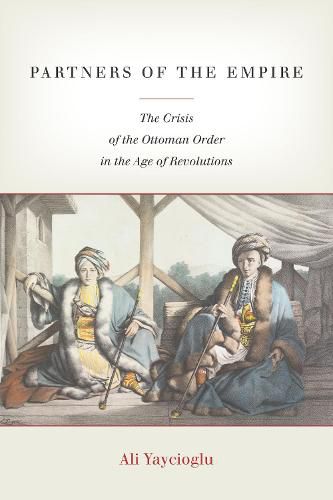Readings Newsletter
Become a Readings Member to make your shopping experience even easier.
Sign in or sign up for free!
You’re not far away from qualifying for FREE standard shipping within Australia
You’ve qualified for FREE standard shipping within Australia
The cart is loading…






Partners of the Empire offers a radical rethinking of the Ottoman Empire in the eighteenth and early nineteenth centuries. Over this unstable period, the Ottoman Empire faced political crises, institutional shakeups, and popular insurrections. It responded through various reform options and settlements. New institutional configurations emerged; constitutional texts were codified-and annulled. The empire became a political theater where different actors struggled, collaborated, and competed on conflicting agendas and opposing interests.
This book takes a holistic look at the era, interested not simply in central reforms or in regional developments, but in their interactions. Drawing on original archival sources, Ali Yaycioglu uncovers the patterns of political action-the making and unmaking of coalitions, forms of building and losing power, and expressions of public opinion. Countering common assumptions, he shows that the Ottoman transformation in the Age of Revolutions was not a linear transition from the old order to the new, from decentralized state to centralized, from Eastern to Western institutions, or from pre-modern to modern. Rather, it was a condensed period of transformation that counted many crossing paths, as well as dead-ends, all of which offered a rich repertoire of governing possibilities to be followed, reinterpreted, or ultimately forgotten.
$9.00 standard shipping within Australia
FREE standard shipping within Australia for orders over $100.00
Express & International shipping calculated at checkout
Partners of the Empire offers a radical rethinking of the Ottoman Empire in the eighteenth and early nineteenth centuries. Over this unstable period, the Ottoman Empire faced political crises, institutional shakeups, and popular insurrections. It responded through various reform options and settlements. New institutional configurations emerged; constitutional texts were codified-and annulled. The empire became a political theater where different actors struggled, collaborated, and competed on conflicting agendas and opposing interests.
This book takes a holistic look at the era, interested not simply in central reforms or in regional developments, but in their interactions. Drawing on original archival sources, Ali Yaycioglu uncovers the patterns of political action-the making and unmaking of coalitions, forms of building and losing power, and expressions of public opinion. Countering common assumptions, he shows that the Ottoman transformation in the Age of Revolutions was not a linear transition from the old order to the new, from decentralized state to centralized, from Eastern to Western institutions, or from pre-modern to modern. Rather, it was a condensed period of transformation that counted many crossing paths, as well as dead-ends, all of which offered a rich repertoire of governing possibilities to be followed, reinterpreted, or ultimately forgotten.